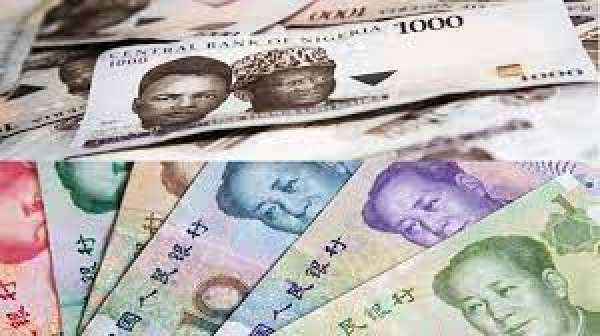Importers from China have continued to trade in US dollars than convert directly to the Chinese Yuan despite the $2.5billion currency swap deal for at least 15billion Yuan (Renminbi) between Nigeria and China three years ago, IgbereTV investigations have revealed.

The deal failed to make the desired impact on the stability of the Naira, as bureaucracy and conversion bottlenecks slowed the utilization of the window by Nigerians, while the Chinese businesses preferred to deal in dollars.
With the three years for the initial agreement already up, feelers from the industry indicate that the Central Bank of Nigeria (CBN) may not renew the deal since it failed to achieve the desired result.
Traders and importers, it was learnt, prefer US dollars as a medium of exchange in business transactions between them and Chinese companies.
This, however, negates the principle of the currency swap deal, as the process is fueling price hike of goods coming from China, especially with the rate at which the Naira is trading against the US currency.
It was gathered that Renminbi auctions, bureaucracy and bottlenecks were major challenges faced by traders and importers carrying out business transactions with China.
These have, however, become disincentives to the use of Naira to Yuan in trade deals between Nigerian importers and the Chinese firms.
But if the process of converting Naira directly to Yuan has been seamless and rid of bottlenecks, experts said, it will lead to reduction in the prices of goods coming from China, while lifting off the pressure from dollar, thereby, giving room for the nation’s currency to grow strength.
The aforementioned challenges have ensured that the target of $2.5 billion to 15 billion Renminbi to be swapped has not been met three years after.
In April 2018, CBN and the People’s Bank of China (PBoC) executed a currency swap agreement on behalf of their respective countries.
CBN, Nigeria’s apex bank, issued the regulations for the US$2.5 billion currency swap agreement in June the same year as the deal was signed to facilitate trade between the two countries and enhance foreign reserve management.
The Bilateral Currency Swap (BCS) agreement was to allow importers of goods from China to conclude their transactions in Yuan instead of the greenback (US Dollar) and vice-versa. This was done to reduce the demand of the US Dollar.
In December 2020, the Naira against the Chinese Yuan further depreciated by -30.27 per cent against the gains recorded in 2018, which can be attributed to lower demand for the Yuan as the US dollar became even more expensive for business transactions despite more awareness of the swap deal with China by traders and the adjustment of the Naira by CBN during the period.
Analysts at Proshare expected the Naira to have depreciated further against Yuan.







